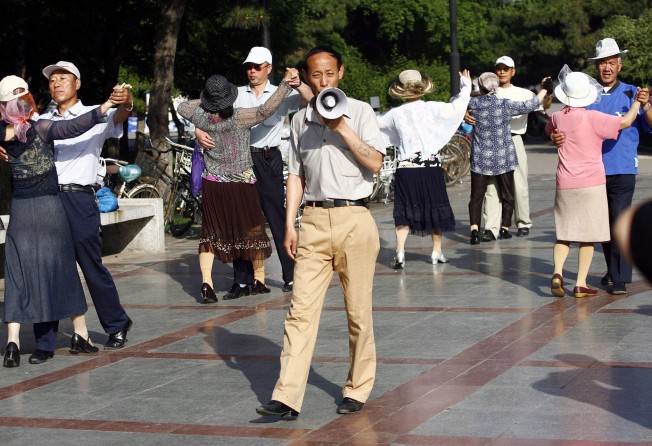
American brands target growing greying market
As the mainland's elderly population continues to rise, US companies are racing to cater to an industry that is seen worth US$100 billion by 2015

American direct selling giants are cashing in on the mainland's ageing population, helped by government policies and the explosive growth of the emerging middle-class willing to spend on beauty products.

Amway, a direct seller of vitamins, air purifiers and cosmetics, and Nu Skin Enterprises, which offers anti-ageing products and nutritional supplements, are both racing to come up with new products and services in an industry that will reach US$100 billion by 2015.
By the end of this year, Nu Skin will launch a regional headquarters in Shanghai with an investment of 450 million yuan (HK$570 million). It will house a research and development centre, a customer experience centre and manufacturing facilities.
"China already surpassed the US in 2011 in anti-ageing product spending, accounting for 25 per cent of our direct selling sales worldwide," said Vincent Cheng, a regional vice-president of Nu Skin Greater China, adding that the facility could support 10 times the current growth of the brand in China.
In the first quarter, the US brand recorded 90 per cent growth to US$175 million in its China business. Sales of its anti-ageing products in the country surged 60 per cent to US$560 million last year.
The Ministry of Commerce recently cleared Nu Skin for direct selling in five provinces and 30 districts, expanding the brand's reach to 19 of the country's 32 provinces and municipalities.
"We need to play to our strength as an anti-ageing-focused and law-abiding brand," Cheng said. "At the same time, we want our development to be a long-term and stable one."
The mainland's beauty industry is looking bright, thanks to the central government's five-year programme, and is predicted to grow 15 per cent annually to reach HK$974 billion in 2015.
Nu Skin is facing rising competition from Amway, which built a second manufacturing base in Guangzhou with a 600 million yuan investment and a research and development centre in Wuxi, Jiangsu province.
While Amway's nutritional supplements led sales of about US$4 billion on the mainland last year, it is planning to roll out new products that incorporate traditional herbal medicine culture.
Chinese consumers were increasingly opting for organic beauty treatments and natural products, said Alice Tsang, an economist at the Hong Kong Trade Development Council.
Technology-driven beauty treatments are also gaining popularity as new instruments represent better efficacy and results.
With direct sales and 300 retail outlets across on the mainland, Amway anticipates a 10 per cent growth in its anti-ageing product lines this year. The company's global sales reached US$11.3 billion last year, with the Chinese market accounting for a third.
"We understand local consumers' growing concerns over organic cosmetics ingredients and our new research facility would promote the development of products that use natural, herbal essences," said Nina Zhong, an associate director of the Artistry brand, Amway's cosmetics and skin care line.
Prospects for other competitors on the mainland look less promising, including Avon Products, the world's largest door-to-door cosmetics merchant, whose Chinese business contributed only 1 per cent of its global operational revenues of US$10.7 billion last year. The US brand was plagued by bribery scandals in 2008, with executives investigated for paying officials to secure the direct selling licence.
Meanwhile, nutritional supplements marketer Herbalife reported sales of US$278.5 million in China, accounting for 6.8 per cent of its global take of US$4.07 billion last year.
Although local-currency net sales jumped 49 per cent in China in the second quarter of this year, company executives said they were cautious about expecting too much too soon, and cited uncertainties in obtaining additional direct-selling licences.